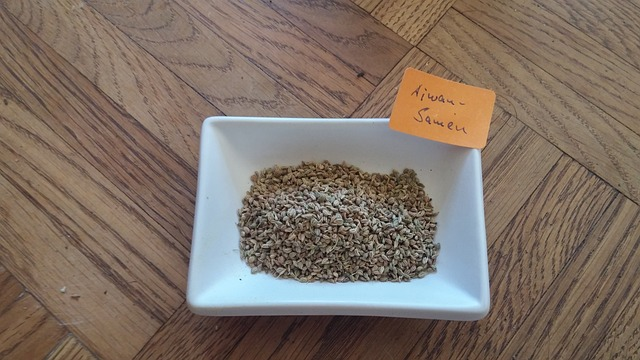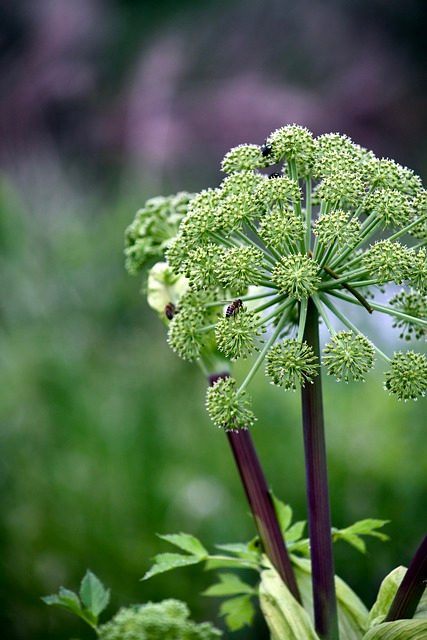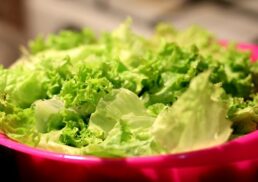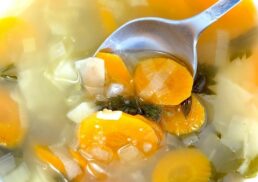Have you ever heard of ajwain seeds? These tiny, aromatic seeds are like little treasure chests, packed with health benefits and flavor. Used for centuries in traditional Ayurvedic medicine, ajwain seeds have gained popularity for their impressive nutritional profile and wide array of medicinal properties. In this blog post, we’ll explore the wonders of ajwain seeds, their health benefits, and how to incorporate them into your daily life.
From aiding digestion and providing respiratory relief to promoting heart health and offering anti-inflammatory and pain relief properties, ajwain seeds are truly a versatile and potent natural remedy. So let’s dive in and discover the secrets of these amazing seeds that have been cherished for generations.
Table of Contents
Key Takeaways
Ajwain seeds are a nutritious source of fiber, vitamins, minerals and compounds that provide numerous health benefits.
Potential precautions and side effects should be considered before consuming Ajwain for pregnant/breastfeeding women or those on medication.
Incorporate Ajwain into your diet through water, tea or cooking with fresh & properly stored seeds to maximize its healing properties.
Ajwain’s Nutritional Profile

Ajwain is a plant that produces small, seed-like fruits. It is also known by its Latin names Trachyspermum ammi and carom seeds. These fruits are similar to caraway and cumin. The ajwain seed, known for its strong, bitter taste and pungent aroma, is a great source of fiber, antioxidants, and other essential vitamins and minerals that contribute to human health.
What exactly gives ajwain seeds their beneficial properties? Here’s a detailed look at their nutritional composition.
Essential Minerals
Ajwain seeds are rich in essential minerals like calcium, iron, and phosphorus, and their extraction leads to the production of ajwain oil. These minerals play vital roles in maintaining overall health, with calcium aiding in arthritis pain relief and helping reduce inflammation.
These essential minerals play an indispensable role in various bodily functions, including supporting healthy bones, regulating hormones, and facilitating digestion. With their wealth of essential minerals, it’s no wonder that ajwain seeds have been utilized in Ayurvedic medicine for centuries.
Vitamins and Compounds
In addition to essential minerals, ajwain seeds are also packed with vitamins and compounds that contribute to their medicinal properties. Some of these compounds include:
Thymol
Carotene
Riboflavin
Niacin
Thiamin
Thymol, in particular, has been found to be beneficial for oral health and possesses anti-inflammatory and analgesic properties, providing relief from inflammation and pain.
Health Benefits of Ajwain Seeds

The potent nutritional profile of ajwain seeds translates into a multitude of health benefits. Some of the primary health benefits of ajwain seeds include:
Aiding digestion
Providing respiratory relief
Promoting heart health
Offering anti-inflammatory and pain relief properties
We’ll now examine the potential health benefits of ajwain seeds in more detail and explore how they can enhance your overall health.
Digestive Aid
Ajwain seeds have been found to be effective as a digestive aid, providing relief from:
indigestion
gas
bloating
stimulating appetite
They have a soothing effect on the nervous system and promote the production of digestive juices and saliva, helping to alleviate digestion-related issues.
Whether you’re dealing with colicky pain caused by gas accumulation, indigestion, or intestinal infections, taking ajwain with common salt and warm water can offer much-needed relief.
Respiratory Relief
For those struggling with respiratory problems, ajwain seeds can be a breath of fresh air. The seeds have an expectorant property, which helps clear mucus and improve airflow in the lungs, providing respiratory relief.
Ajwain seeds have also been recommended as a remedy for chronic bronchitis, asthma, and chronic colds and coughs. Some even find relief from dry cough by consuming betel leaf with ajwain.
Heart Health
In addition to their digestive and respiratory benefits, ajwain seeds may also have a positive impact on heart health. Research suggests that ajwain seeds may help lower blood pressure, cholesterol, and triglyceride levels.
Keep in mind, though, that further research is required to validate these effects and gain a comprehensive understanding of ajwain seeds’ potential heart health benefits.
Anti-inflammatory and Pain Relief
Ajwain seeds possess anti-inflammatory properties and analgesic properties, making them beneficial for treating conditions such as arthritis, migraines, and menstrual cramps. In a study involving 60 people with knee osteoarthritis, participants who took ajwain capsules containing thymol experienced significantly less pain and stiffness compared to those who took a placebo after four weeks.
Furthermore, ajwain seeds wrapped in a tissue and smelled, or burned and inhaled, may be helpful in managing migraines and other head-related issues. With their anti-inflammatory and pain-relieving properties, ajwain seeds are truly a versatile and potent natural remedy.
Precautions and Side Effects
While ajwain seeds offer numerous health benefits, it’s important to be aware of potential precautions and side effects. Some individuals may experience allergic reactions or interactions with other medications, and pregnant and breastfeeding women should avoid consuming ajwain seeds due to potential health risks.
We’ll delve into these potential risks and side effects in the following segment.
Pregnancy and Breastfeeding
Pregnant and breastfeeding women should exercise caution when consuming ajwain seeds, as they may pose potential health risks, including potential birth defects or even miscarriage.
It’s always best to consult with a healthcare professional before consuming ajwain seeds during pregnancy or while breastfeeding.
Learn more, visit Ajwain During Pregnancy- Benefits, Precautions And Side Effects.
Allergies and Interactions
Some individuals may experience allergies or interactions with other medications when using ajwain seeds. Excessive consumption can result in nausea, skin irritation, vomiting, and headaches. Moreover, some individuals may experience a runny nose, rash, or hives if they are allergic to ajwain.
Additionally, ajwain can make the skin more sensitive to sunlight when taken with medications that increase sensitivity to sunlight. It’s always best to consult a healthcare professional before using ajwain in combination with other medications.
Ways to Incorporate Ajwain into Your Diet
Having examined the health benefits, precautions, and side effects of ajwain seeds, we’ll now suggest a few methods to include them in your everyday routine.
From drinking ajwain water and making ajwain tea to cooking with ajwain seeds, there are several ways to enjoy the benefits of this powerful spice.
Ajwain Water
Ajwain water is a simple and effective way to consume ajwain seeds, offering benefits for digestion, detoxification, and immunity. Here’s how to make ajwain water:
Mix one teaspoon of ajwain seeds in a glass of warm water.
Let it steep for 5-10 minutes to make ajwain water.
Strain the seeds and separate them from the water.
Drink the water on an empty stomach.
With its ease of preparation and numerous health benefits, ajwain water is a great addition to your daily routine.
Ajwain Tea
Another way to incorporate ajwain into your diet is through ajwain tea, which can be used as a home remedy for digestive issues and respiratory problems. To prepare ajwain tea, simply boil one teaspoon of ajwain seeds in one cup of water for 5 minutes, then strain the mixture and enjoy the tea while it’s warm.
With its pungent taste and healing properties, ajwain tea is a comforting and therapeutic addition to your daily routine.
Cooking with Ajwain Seeds
Cooking with ajwain seeds is another excellent way to enjoy their health benefits and add a burst of flavor to your dishes. Ajwain seeds can be used in various dishes, including curries, soups, and stews. They can also be used to make ajwain-infused oil, which can be drizzled over salads, rice dishes, or used as a cooking oil for added flavor and health benefits.
By incorporating ajwain seeds into your cooking, you’ll not only elevate your culinary creations, but also reap the numerous health benefits they offer.
How to Store and Select Ajwain Seeds
To truly enjoy the flavor and health benefits of ajwain seeds, which are rarely eaten raw, selecting and storing them correctly is of the utmost importance.
In the following segment, we’ll offer advice on choosing the freshest, most potent ajwain seeds and methods for storing them to retain maximum freshness and effectiveness.
Selection Tips
When selecting ajwain seeds, look for those that are fresh, clean, and free from any signs of mold or damage. Opt for seeds that are consistent in size and color and have a strong aroma, as these are indicators of freshness and quality.
It’s also a good idea to purchase ajwain seeds from trustworthy and dependable sources to ensure you’re getting the best quality possible.
Storage Methods
Store ajwain seeds in an airtight container in a cool, dark place to maintain their freshness and potency. Keeping ajwain seeds away from light and moisture will help preserve their flavor and effectiveness.
With proper storage, ajwain seeds can be retained indefinitely, ensuring you always have this powerful spice on hand to enhance your dishes and boost your health.
Summary
In conclusion, ajwain seeds are a versatile and potent natural remedy with numerous health benefits. From aiding digestion and providing respiratory relief to promoting heart health and offering anti-inflammatory and pain relief properties, ajwain seeds are truly a treasure trove of healing potential. By incorporating ajwain seeds into your daily life through ajwain water, tea, and cooking, you’ll not only elevate your culinary creations, but also enhance your overall well-being.
So why not give ajwain seeds a try and unlock their incredible health benefits? Your taste buds and your body will surely thank you.
Frequently Asked Questions
What are ajwain seeds?
Ajwain seeds, also known as Trachyspermum ammi or carom seeds, are used for their strong, bitter taste and numerous health benefits.
They are small, seed-like fruits from a plant similar to caraway and cumin.
How can I incorporate ajwain seeds into my diet?
Try adding ajwain to your daily routine by drinking ajwain water, making ajwain tea, or cooking with ajwain seeds in various dishes.
What are the health benefits of ajwain seeds?
Ajwain seeds can offer a range of health benefits, from aiding digestion to providing respiratory relief and promoting heart health.
They also possess anti-inflammatory and pain relief properties.
Are there any precautions or side effects associated with ajwain seeds?
Pregnant and breastfeeding women should avoid consuming ajwain seeds due to potential health risks, and some individuals may experience allergic reactions or interactions with other medications.
Therefore, it is important to take precautionary measures when using ajwain seeds.
How should I store ajwain seeds?
Store ajwain seeds in an airtight container in a cool, dark place to keep them fresh and potent.









